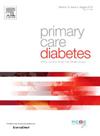Effectiveness of AI-driven interventions in glycemic control: A systematic review and meta-analysis of randomized controlled trials
IF 2.6
4区 医学
Q3 ENDOCRINOLOGY & METABOLISM
引用次数: 0
Abstract
This systematic review aims to assess the effectiveness of AI-Driven Decision Support Systems in improving glycemic control, measured by Time in Range (TIR) and HbA1c levels, in patients with diabetes. Included studies were randomized controlled trials (RCTs) that evaluated AI interventions in diabetes management. Exclusion criteria included non-English studies, non-peer-reviewed articles. Studies were identified by searching electronic databases including PubMed, EMBASE, and Cochrane Library up to December 2024. Risk of bias was assessed using the Cochrane Risk of Bias tool for RCTs. Results were synthesized using a random-effects meta-analysis model. The review included 17 RCTs with a total of 3381 participants in the intervention group and 3176 in the control group. AI interventions were found to significantly improve TIR and reduce HbA1c levels. The meta-analysis for TIR yielded a mean difference of 0.54 (95 % CI: 0.05–1.03), and for HbA1c a standardized mean difference of –0.91 (95 % CI: –1.23 to –0.58). Evidence was limited by high heterogeneity (I² > 90 % for both outcomes) and indications of publication bias, which may overestimate the effectiveness reported. Despite limitations, the results support the potential of AI interventions in enhancing diabetes management, though variability in effectiveness suggests the need for personalized approaches.
人工智能驱动的血糖控制干预措施的有效性:随机对照试验的系统回顾和荟萃分析。
本系统综述旨在评估人工智能驱动的决策支持系统在改善糖尿病患者血糖控制方面的有效性,通过时间范围(TIR)和HbA1c水平来衡量。纳入的研究是评估人工智能干预糖尿病管理的随机对照试验(rct)。排除标准包括非英语研究、非同行评议的文章。通过检索PubMed、EMBASE和Cochrane Library等电子数据库确定研究截止到2024年12月。使用Cochrane rct偏倚风险工具评估偏倚风险。结果采用随机效应荟萃分析模型进行综合。本综述纳入17项随机对照试验,干预组共3381名参与者,对照组3176名参与者。人工智能干预可显著改善TIR并降低HbA1c水平。TIR的荟萃分析得出的平均差异为0.54(95 % CI: 0.05-1.03), HbA1c的标准化平均差异为-0.91(95 % CI: -1.23至-0.58)。证据受到高度异质性(两种结果均为I²bbb90 %)和发表偏倚指指的限制,这可能高估了报道的有效性。尽管存在局限性,但结果支持人工智能干预在加强糖尿病管理方面的潜力,尽管有效性的可变性表明需要个性化的方法。
本文章由计算机程序翻译,如有差异,请以英文原文为准。
求助全文
约1分钟内获得全文
求助全文
来源期刊

Primary Care Diabetes
ENDOCRINOLOGY & METABOLISM-PRIMARY HEALTH CARE
CiteScore
5.00
自引率
3.40%
发文量
134
审稿时长
47 days
期刊介绍:
The journal publishes original research articles and high quality reviews in the fields of clinical care, diabetes education, nutrition, health services, psychosocial research and epidemiology and other areas as far as is relevant for diabetology in a primary-care setting. The purpose of the journal is to encourage interdisciplinary research and discussion between all those who are involved in primary diabetes care on an international level. The Journal also publishes news and articles concerning the policies and activities of Primary Care Diabetes Europe and reflects the society''s aim of improving the care for people with diabetes mellitus within the primary-care setting.
 求助内容:
求助内容: 应助结果提醒方式:
应助结果提醒方式:


